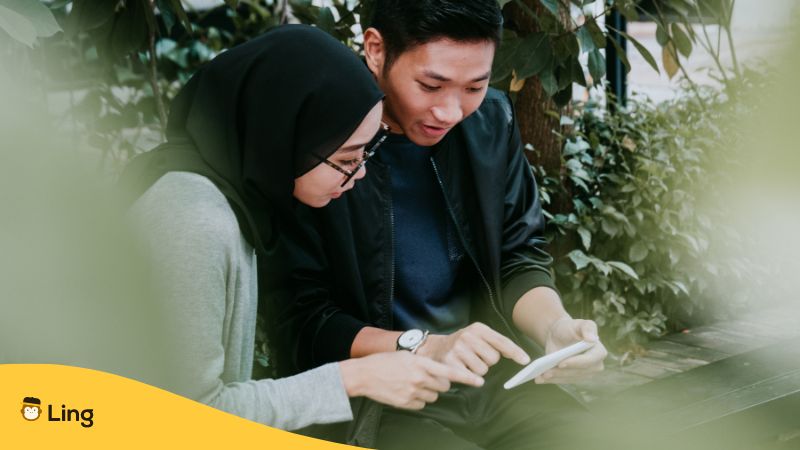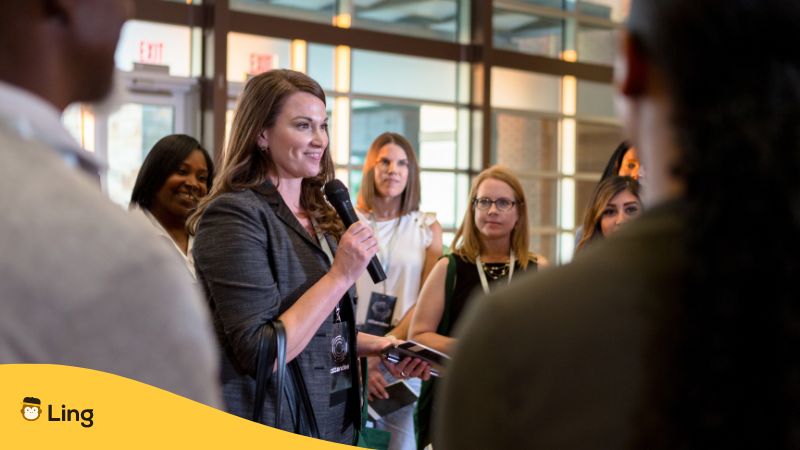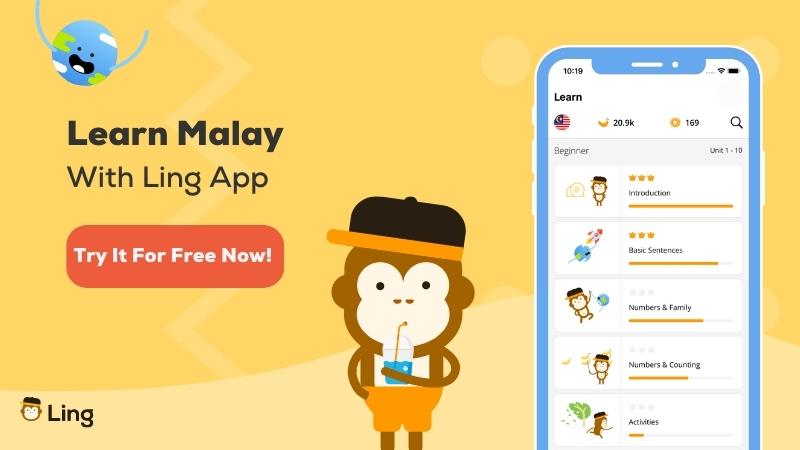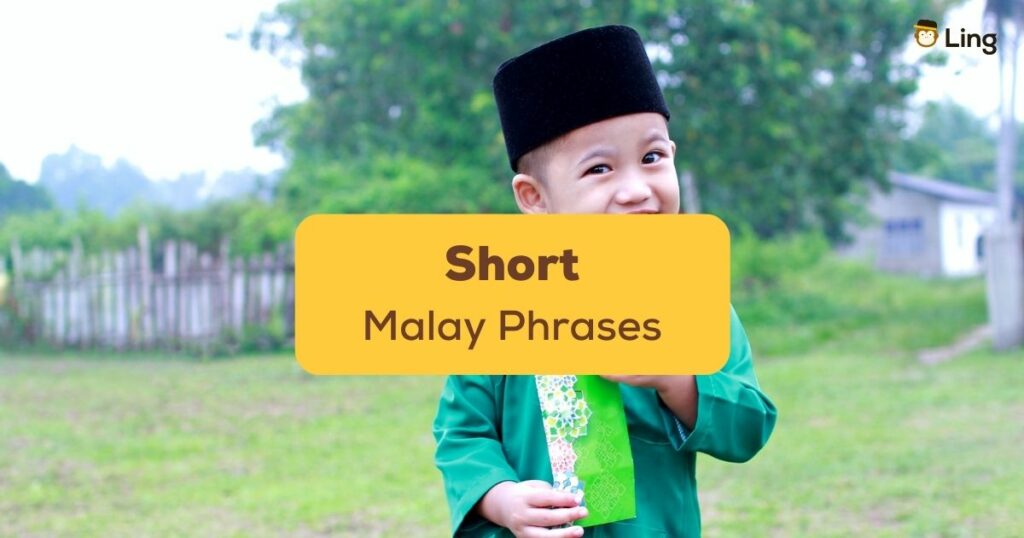Booking a flight to Kuala Lumpur? Good idea! Malaysia is a land of beautiful people, stunning sceneries, and fantastic food – we can’t wait for you to try everything out! However, you should bring this guide to short Malay phrases along with you!
We curated some of the most useful phrases you can employ on your trip. Having these phrases will help you communicate better with the locals and even give you a chance to make a new friend or two!
Check out this list of short Malay phrases to bring on your trip to Malaysia. You can bookmark this page or print out the lists we provided for easy access!
Short Malay Phrases For Greeting

Selamat Datang
Selamat datang means “welcome” and is often said when welcoming someone into a location, such as a restaurant, their home, and more.
General Greetings
There are three general greetings to note: selamat pagi, which means “good morning;” selamat petang, which means “good afternoon;” and selamat malam, which means “good night.”
Malay Muslims greet each other with assalamu alaikum – “peace be with you” – in Arabic.
Apa Khabar
Apa khabar means “how are you” and is considered a polite greeting for everyone! Use it on people you meet on the street, friends you make along the way, and even your GrabCar driver.
Khabar Baik
Khabar baik means “I’m fine,” but the more polite way to say it is khabar baik, terima kasih. And that last phrase means…
Terima Kasih
Terima kasih means “thank you.” It is considered polite to say it whenever you are being served, asked about, or have anything done for you!
Sama Sama
Sama-sama means “you’re welcome” in Bahasa Melayu. It is typically used as a response to terima kasih. It should not be confused with selamat datang.
| English | Malay |
| Welcome | Selamat datang |
| Good morning | Selamat pagi |
| Good afternoon | Selamat petang |
| Good night | Selamat malam |
| How are you | Apa khabar |
| I’m fine, thanks | Khabar baik, terima kasih. |
| Thank you | Terima kasih |
| You’re welcome | Sama-sama |
Short Malay Phrases For Pleasantries

Parting phrases
These three phrases in Bahasa Malaysia are essential to remember, especially when bidding someone goodbye: selamat tinggal is to be said if you are leaving; selamat jalan if you’re the one staying; and sampal jumpa lagi means “see you again.”
Selamat Maju Jaya
When wishing someone luck, this phrase will be appropriate. Selamat maju jaya translates to “Go forward and win!” and is Malaysia’s version of “break a leg.” So use it when you want to give someone good vibes!
It is also acceptable to say semoga berjaya in situations like these.
Sihat Selalu
When out having drinks with friends, it is customary to toast to everyone’s good health. The phrase “cheers to your good health!” is sihat selalu! Make sure your drink is topped up before you call for a toast!
Semoga Hari Anda Baik Sahaja
Bowing off after a fun night at Pasar Minggu? Part ways with your friends in suitable terms by saying semoga hari anda baik sahaja. It translates to “I hope you have a good day!” and is considered a friendly way to say goodbye.
Jemput Makan
About to dig into your nasi goreng? Before eating, invite everyone else to the table by saying jemput makan, which means “Please eat!” It is Malaysia’s own version of bon appetit in French.
Selamat Jalan
Seeing someone off at the lapangan terbang (airport?) Make sure to bid them a bon voyage with selamat jalan, which translates to “have a good journey.”
| English | Malay |
| Goodbye (speaker leaving) | Selamat tinggal. |
| Goodbye (speaker staying) | Selamat jalan. |
| See you again | Sampal jumpa lagi. |
| Go forward and win | Selamat maju jaya |
| Good luck | Semoga berjaya |
| Cheers to your health | Sihat selalu |
| Have a good day | Semoga hari anda baik sahaja |
| Please eat | Jemput makan |
| Have a good trip | Selamat jalan |
Getting To Know People In Malay

Sudah Lama Tidak Berjumpa
Meeting someone after a long time? Say Sudah lama tidak berjumpa – “Long time no see!” It is appropriate to say this when meeting someone again after a while.
Siapa Nama Anda?
Want to get to know a stranger a little better? Say siapa nama anda, which means “what’s your name.” You might expect to hear this next one in response…
Nama Saya…
Nama saya means “My name is…” and is followed by the speaker’s name. This is the perfect response to the question siapa nama anda.
Dari Mana Asal Saudara?
The next thing you should ask when meeting someone new is dari mana asal saudara, which means “where are you from?” This can be shortened to asal dari mana, which is the more informal way to ask this question.
Saya Dari…
Your new friend should answer with the following phrase: “Saya dari…” which means “I’m from…” and is followed by their place of origin.
Selamat Berkenalan
To wrap up this conversation, Malays usually use the phrase selamat berkenalan, which means “Nice to meet you.” Use it to punctuate a dialogue on a high note.
| English | Malay |
| Long time no see | Sudah lama tidak berjumpa |
| What’s your name? | Siapa nama anda? |
| My name is… | Nama saya… |
| Where are you from? | Dari mana asal saudara? |
| I am from… | Saya dari… |
| Nice to meet you. | Selamat berkenalan. |
Answering Questions In Malay

Adakah Saudara Faham?
During a conversation, especially when practicing basic Malay phrases with a local, you might be asked: adakah saudara faham? This means “Do you understand?” and is asked to confirm your understanding of something.
Saya Faham
The typical response to the previous phrase, if you did understand, is Saya faham. It means “I understand” and confirms your understanding of the subject of discussion.
Saya Tidak Faham
If you didn’t understand, you could say saya tidak faham – “I didn’t understand.” You may also say sila ulang to ask someone to repeat what they said, so you can hear it better.
Ya
When you want to answer in the affirmative in Bahasa Melayu, you may say ya, which means yes, or…
Tidak/Tak
You may also say tidak, which means “no.” However, there is a shorter way to say no — locals usually say tak instead of the full tidak, especially when talking to someone familiar.
Boleh Jadi
Not sure about the answer? You may say boleh jadi, which translates to “maybe,” when you are not sure how to answer affirmatively or negatively to a particular question.
Saya Tidak Tahu
If you don’t know the answer, you can also respond with saya tidak tahu, which translates to “I don’t know.” An informal way to say this is tak tau.
Maafkan Saya
Need to ask for someone’s attention, or get in someone’s way? Say it with maafkan saya, which translates to “excuse me.”
Saya Tersesat
Confused in the conversation? If you need to get the conversation back on track, you may say saya tersesat – “I’m lost.” It signifies to the listener that you require clarity.
Di Mana
Di mana translates to “where,” and is used to ask about the location of something. So, this phrase will serve you well if you find yourself looking for a place or object.
| English | Malay |
| Do you understand? | Adarah saudara faham? |
| I understand. | Saya faham. |
| I didn’t understand. | Saya tidak faham. |
| Yes | Ya |
| No | Tidak/Tahu |
| Excuse me. | Maafkan saya. |
| I’m lost | Saya tersesat |
| Where? | Di mana? |
Learn More Malay With Ling

Ready to take your education to the next level? While knowing a few helpful phrases in Malay is well and good, nothing beats being fluent in the language. To do that, you need the Ling app!
Our app offers lessons in Malay and over 60 more languages, such as Japanese, Korean, Tagalog, and more! These lessons were created with native speakers and educators, who crafted a learning experience that works great for everyone – from beginners to experts.
Learn how to be fluent in Malay with the Ling App today by downloading it for iOS or Android.











